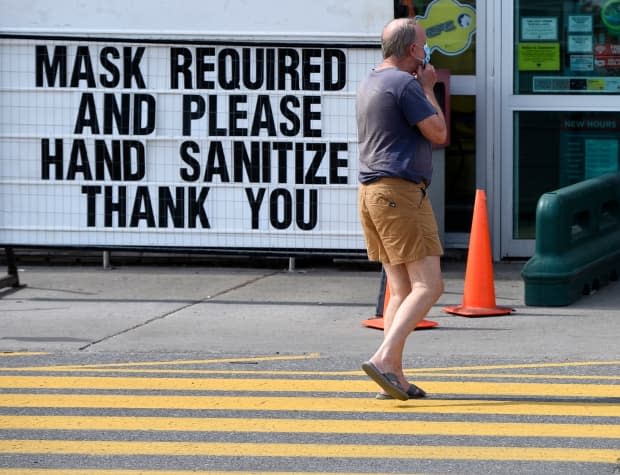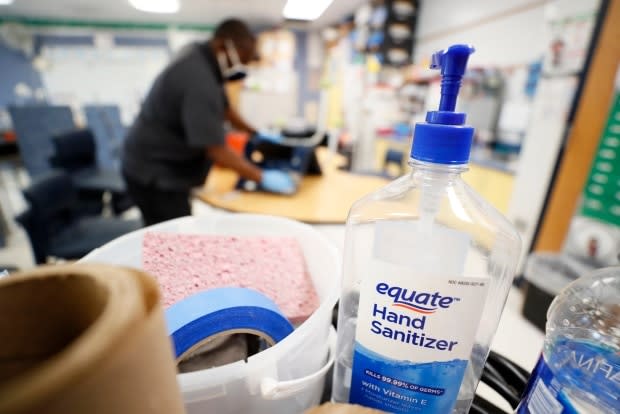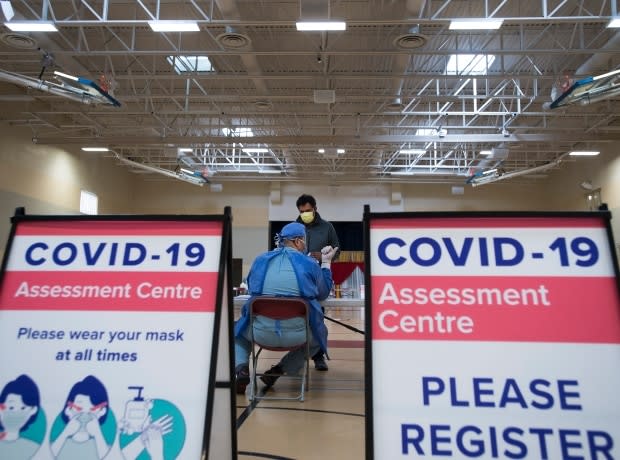What you need to know about COVID-19 in Ottawa on Sunday, Aug. 9

Recent developments:
Ottawa Public Health reported six cases of COVID-19 Sunday, bucking a recent trend of double-digit case numbers that has persisted most days for the past few weeks.
Some private cannabis retailers in Ottawa say Ontario's move to Stage 3 has meant a drop in their sales.
The Nunavut government is spending millions to have their residents self-isolate in an Ottawa hotel before returning to the territory.
Gatineau officials have closed a day camp at École Du Vieux-Verger after an adult tested positive for the virus on Friday.
What's the latest?
Ottawa Public Health reported six new cases of COVID-19 on Sunday.
Ontario also reported fewer than 100 cases of COVID-19, continuing what is now a week-long trend. There were only 79 new cases across the province on Sunday.
The Government of Nunavut has spent nearly $5 million since the end of March to house more than 1,200 of its residents at an Ottawa hotel so they can self-isolate before returning home. The territory is taking these steps to keep its COVID-19 case count at zero.
Some cannabis retailers in Ottawa are decrying the province's move to halt home deliveries late last month. They said they've seen a drop in sales they attribute to the province's decision.
How many cases are there?
There have been 2,629 confirmed cases of COVID-19 in Ottawa since the pandemic began. The number of deaths is at 264.
The majority of cases in the city — 2,226 — are classified as resolved.
In all, public health officials have reported more than 4,000 cases across eastern Ontario and western Quebec, with nearly 3,500 cases resolved.
COVID-19 has killed 102 people in the region outside Ottawa: 52 in Leeds, Grenville and Lanark counties, 17 in other parts of eastern Ontario and 33 in the Outaouais.
Experts analyzing blood tests said last week the number of people infected with the coronavirus in Ontario could be four times more than previously confirmed and in Quebec, more than twice as many.
What's open and closed?
Ottawa is now in Stage 3 of Ontario's reopening plan, which means many more businesses are allowed to reopen, including dine-in restaurants and movie theatres.
Indoor gatherings of up to 50 people and outdoor gatherings of up to 100 are now allowed in that province but attendees must adhere to physical distancing guidelines.
Quebec has similar rules, with its cap on physically distanced gatherings in public venues now up to 250 people, allowing smaller festivals.

The Canada Aviation and Space Museum opened to the public this weekend.
Most Ottawa Public Library branches will be open for in-person browsing and computer use Aug. 17.
Elementary students in Ontario will be heading back to school full time come September, while most high school students will split their time between the classroom and online learning, depending on the board.
Quebec's back-to-school plans will bring students to classrooms again this fall.
WATCH | Current back-to-school plan a 'huge collapse of the imagination,' MPP says
Distancing and isolating
The novel coronavirus primarily spreads through droplets when an infected person coughs or sneezes on another person or object. People don't need to have symptoms to be contagious.
That means physical distancing measures such as working from home, meeting others outdoors as much as possible and keeping distance from anyone they don't live with or have in their circle, including when you have a mask on.

Masks are now mandatory in indoor public settings in all of eastern Ontario and Quebec, where transit officials and taxi drivers are now required to bar access to users over age 12 who refuse to wear one.
Masks are also recommended outdoors when you can't stay the proper distance from others.
Anyone who has symptoms or travelled recently outside Canada must self-isolate for at least 14 days.
Anyone waiting for a COVID-19 test result in Ontario must self-isolate at least until they know the result. Quebec asks people waiting to only self-isolate in certain circumstances.
People in both provinces should self-isolate if they've been in contact with someone who's tested positive or is presumed to have COVID-19.
Ontario's Chief Medical Officer of Health strongly urges self-isolation for people with weakened immune systems and OPH recommends people over 70 stay home as much as possible.
Top medical officials say people should be prepared for the possibility COVID-19 restrictions last into 2022 or 2023.
What are the symptoms of COVID-19?
COVID-19 can range from a cold-like illness to a severe lung infection, with common symptoms including fever, a dry cough, vomiting and the loss of taste or smell.
Less common symptoms include chills, headaches and pinkeye. Children can develop a rash.
If you have severe symptoms, call 911.
Where to get tested
In eastern Ontario:
In Ottawa any resident who feels they need a test, even if they are not showing symptoms, can be tested at one of three sites.
Inuit in Ottawa can call the Akausivik Inuit Family Health Team at 613-740-0999 for service, including testing, in Inuktitut or English on weekdays.

In the Eastern Ontario Health Unit area, there is a drive-thru centre in Casselman that can handle 200 tests a day and assessment centres in Hawkesbury and Winchester that don't require people to call ahead.
Others in Alexandria, Rockland and Cornwall require an appointment.
In Kingston, the Leon's Centre is hosting the city's test site. Find it at Gate 2.
Napanee's test centre is open daily for people who call for an appointment.
You can arrange a test in Bancroft, Belleville or Trenton by calling the centre and in Picton by texting or calling.
WATCH | Mental health during the COVID-19 pandemic | The Doctors
The Leeds, Grenville and Lanark unit asks you to get tested if you have a symptom or concerns about exposure.
It has a walk-in site in Brockville at the Memorial Centre and testing sites in Smiths Falls and Almonte which require an appointment.
Residents in Renfrew County should call their family doctor and those without access to a family doctor can call 1-844-727-6404 to register for a test or if they have health questions, COVID-19-related or not.
In western Quebec:
Outaouais residents now can get a walk-in test in Gatineau five days a week at 135 blvd. Saint-Raymond and at recurring clinics by appointment in communities such as Gracefield, Val-des-Monts and Fort-Coulonge.
They can call 1-877-644-4545 to make an appointment or if they have other questions.
First Nations:
Local communities have declared states of emergency, put in a curfew or both.
Akwesasne has had 14 confirmed COVID-19 cases. Most are linked back to a gathering on an island with a non-resident who wasn't showing symptoms at the time.

It has a mobile COVID-19 test site available by appointment only. Anyone returning to the community on the Canadian side of the international border who's been farther than 80 kilometres away is asked to self-isolate for 14 days. It's 100 miles or 160 kilometres away on the American side.
Anyone in Tyendinaga who's interested in a test can call 613-967-3603 to talk to a nurse. Face coverings are now mandatory in its public buildings.
People in Pikwakanagan can book an appointment for a COVID-19 test by calling 613-625-2259.
Kitigan Zibi is planning for an Aug. 29 election with changes depending on the status of the pandemic at that time. It plans on starting to open schools and daycares next month.
For more information


